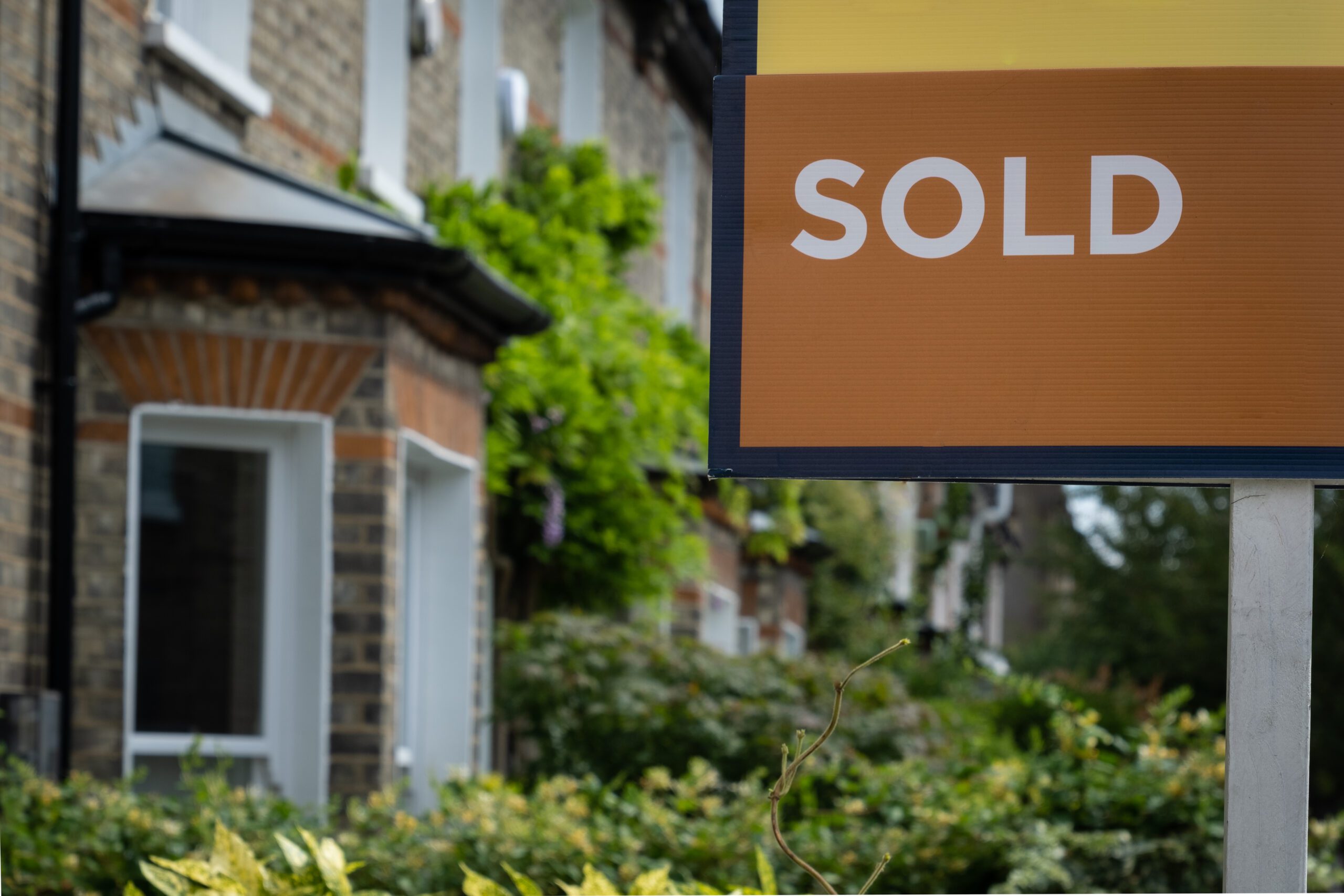Vendors are the lifeline of an estate agency business. It’s no wonder then that so many estate agents cite their biggest challenge as securing more vendors. In this increasingly competitive property market, it is more vital than ever to up-skill on modern marketing techniques that enable you to attract more vendors so you can keep your lifeline flowing. The first thing to say is that if there is a specific technique you are already using that is working, do more of it! One of the biggest property marketing fails of many businesses is simply not throwing more money and resources at strategies that have already shown success. Outside of that, we’ll be looking at these tactics in this blog:
- Utilising Your Existing Customers
- SEO For Estate Agents
- Video Marketing For Real Estate
- Facebook Ads For Estate Agents (And other paid ad options)
- Effective Email Marketing For Estate Agents
- Social Media
- Traditional Marketing That Will Work Today
All of these topics could be a book in themselves but the information in this blog should be able to get you started on some of the effective techniques being used in estate agent marketing today.
| The Compelling OfferWhatever marketing tactics you use, it’s important to think customer first. People want instant gratification – a reason to act now. Where possible, provide people with no brainer, can’t say no offers and reasons to take you up on whatever you’re offering. Giving someone an instant win significantly increases the chance of them taking action. |
Utilising Your Existing Customers

83% of people trust recommendations from their friends and family over any other form of marketing and advertising. For this reason, the best possible way for you to attract new vendors is to:
- Get past vendors referring you to their peers.
- Ensure that past buyers come back to you when they’re ready to sell
Getting More Referrals From Past Vendors
The formula for getting more referrals is simple. Exceed their expectations and do an amazing job for them. One of the primary reasons people make referrals is because it actually makes them feel good to help their friends. But you have to bear in mind, they don’t want to do their friends a disservice (or discredit themselves) by recommending poor services. By exceeding expectations and doing an amazing job for someone, you make it easy and even desirable for a person to refer you. Where vendors are concerned, the best way to please them is to sell their property at the price and in a time frame that they’re happy with. Beyond this, it’s about being likeable as an individual and as a business. Some tips for WOWing your customers:

- Be likeable. Use their names and show an interest in their needs.
- Use superior property photography and listings that attract buyers and sell properties faster.
- Do what you say you will and keep a good flow of communication at all times.
- Handle any issues that do arise with a customer first approach.
The secondary reason why people make referrals is because they are incentivised to do so. You probably know this for yourself, if someone pays you or gives you something for free to do something, you’re more likely to do it! It is worth considering how you can incentivise past clients to refer someone they know. Just don’t forget that if the client did not have a good experience, it is very unlikely they will make a referral, no matter how good the incentive. Steps For Incentivising Referrals:
- Create a list of past vendors you can reach out to. Remove any unhappy clients from this list.
- Clearly communicate the incentive to the referrer by email, text, phone etc.
- The benefit & terms should be made clear to the referrer.
- Make it easy for them to make the referral – connect them to a page where they can provide someone’s details or include a template / link that they can easily forward.
- Make sure you are able to track any referrals so that you can issue any incentives.
In terms of which past vendors to ask, the ones who have interacted with most recently will be your “warmest” potential referrers. You could even create a warmer list by asking vendors if they’d be happy to refer you during your last meeting with them. If they say yes, they could be added to a separate list for “extra warm potential referrers”.
| Pro Tip:Always ASK (happy customers) for a referral. If you don’t ask you don’t get. |
Ensuring Past Buyers Come Back To You

As with your vendors, the best way to increase the chances of someone coming back to you is to exceed their expectations and do an amazing job for them. The main difference between dealing with past buyers and vendors is that you have no idea when the buyer will be ready to sell. For this reason, you want to periodically be reminding past buyers of your existence so that, when the time does come, you are first in their mind. Example Strategy For Staying First In Mind
- Add buyers to a specific email or other correspondence list.
- Reach out to that list at specific intervals with something that adds value to them. Examples of this could be local news or events or tips for homeowners.
- Be an open channel and make buyers aware that they can contact you if they need anything.
- At intervals, include a call to action (a request that they take some action). A call to action in this case might be offering a free valuation, asking for a call if they are considering selling or it could even be offering an incentive for a referral!
| Pro Tip:Where possible we would advise communication is by email as this is easy for you to automate. You can purchase email software that will send specific emails to specific people at specific times without you having to physically go in and do it one by one. |
SEO For Estate Agents
Outside of asking people you know, where do you think most people go when they want to find a service provider? The Internet.

In fact, 86% of people looking for a local business use a search engine to find one. With Google being the most popular search engine in the UK, it is vital that when vendors carry out a search for an estate agent, your name pops up. The process of getting your business to appear high up in search results is called Search Engine Optimisation (SEO). What’s really exciting about Google search is that 50% of people who search for a business “near me” end up actually visiting that business. This makes Google one of the most powerful tools in your property marketing arsenal. The goal for driving vendors to your business via Google is for your website to appear as high up on page one of the search results as possible. The screenshot below shows example search results for the words “estate agent in Croydon”.
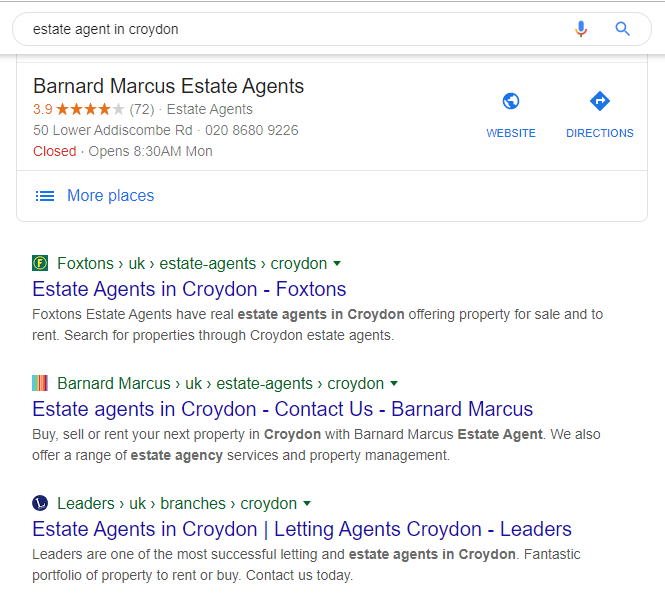
SEO is not for the faint hearted – it’s a science and something well worth investing in. There are some things you can do yourself to improve your SEO but it is certainly worth considering hiring an expert to help you. Why It’s So Important? Let’s take a look at searches relating to estate agents in the home of FocalCity – Croydon:
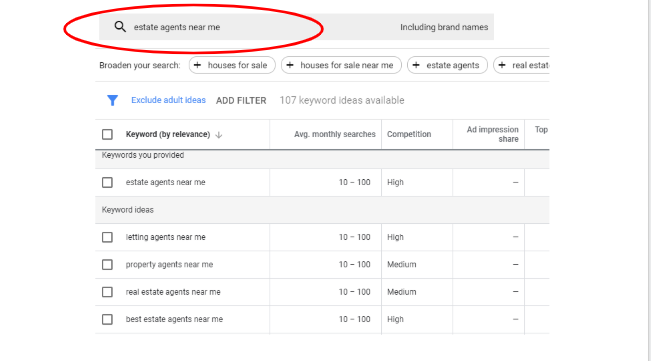
A screenshot of results from Google Keyword Planner As you can see, up to 100 people per month are actively looking for an estate agent in Croydon:
| Word(s) Searched in Google | No. Of Searches Per Month |
| Estate Agents Near Me | 10-100 |
| Best Estate Agent | 10-100 |
Let’s look at the first set of search words “Estate Agents Near Me”. In Croydon, between 10-100 people are typing these words into Google every month. Granted, some of these may be people looking to buy, rent or even landlords. But some of them will be vendors. The numbers may sound small but if 50% of the people who search find you and visit/contact you, that would be an additional 5-50 potential clients through the door each month. The great thing about SEO – and being found in Google is that a lot of people who search for words like these are actively looking to take action. They are not casual browsers. Your Google Business Profile Another really important part of your SEO for estate agents strategy should be your Google Business profile.
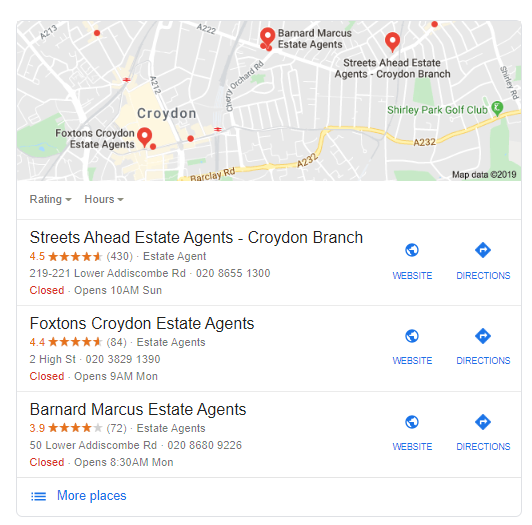
You’ve probably seen this box before. It’s called Google Places. It’s a section that shows up high in the Google search page and gives the person looking a snapshot of a local offering plus that business’s Google reviews, a direct link to their website and, on mobile, the ability to call the business in one click. To appear in this box, you need to ensure your business has a Google Business Listing.
How To Create a Google Business Listing:
- Visit Google My Business where you will either be able to create or gain access to an existing business listing.
- Once you’ve created a new (or gained access to an existing) listing, complete all the profile information and go through the verification process.
- Once completed, you’ll need to optimise your Listing to maximise its position in search and the chances of someone clicking it once they find it.
- To optimise, make sure all the information is filled out, add high quality photos and start requesting more Google reviews.
Adding Professional Photography To Your Google Business Listing

According to Google, listings with photos attract 35% more clicks from potential customers. Add as many appealing photos as possible. Use professional photography to ensure that the photos attract the eye (and the clicks) of as many people as possible. Photos you can include in your Google Business Listing:
- Exterior and Interior property photos of your business premises
- You and your team
- Some of the properties you sell
- Related items such as marketing materials
Click here to get a free copy of our ebook on Property Photography Mastery to learn how you can start taking high-quality photography for all your estate agent marketing.
Video Marketing For Real Estate

Today’s market is more competitive than ever. Simply being present on the high street is no longer enough to win vendor instructions.
It’s estimated that 75% of vendors carry out online research before instructing. They investigate your website, your portal listings, reviews and even your social media. Vendors do this research looking for the agent that stands out – looking for the agent who appears best placed to sell their property at the right price and in a short time.
Video is a powerful tool that not only stands out to buyers but is something that most of your competitors are probably not using. It’s reported that only 30% of agents use video in their marketing. Video could therefore give you the edge.
It’s no surprise than that 73% of vendors are more likely to list with an agent who uses video!
To have a look at our Ultimate Guide To Video Marketing For Estate Agents, click here.
Major Reasons You Should Be Using Video
Outside of their appeal to vendors, video
- Increase your position in Google (and other search) meaning more vendors (and buyers) are more likely to come across your website in the first place.
- Video tends to increase the amount of time spent on a website. This is not only good for helping your position in search but also your conversion rates.
- Video tends to generate more leads!
How To Use Video In Your Marketing
Vendors want to instruct an estate agent who they believe will be able to sell their property. It therefore makes sense to use video in a way that showcases important factors for potential buyers.
Point of Interest videos highlight important, attractive elements of the area a property is situated in. A Point of Interest video would show a property’s proximity to a train station or green space (features 28% and 17% (respectively) of buyers would pay more for).
Point of Interest videos can separate you from your competition and give vendors the strong impression they need to choose your agency over another.
Other Use of Video:
- Client Testimonials
- Agency Profile explaining “why you”
- Property Walk-Throughs
- 360 Virtual Tours
To learn more about how to incorporate video into your estate agent marketing, visit here.
Facebook Ads For Estate Agents
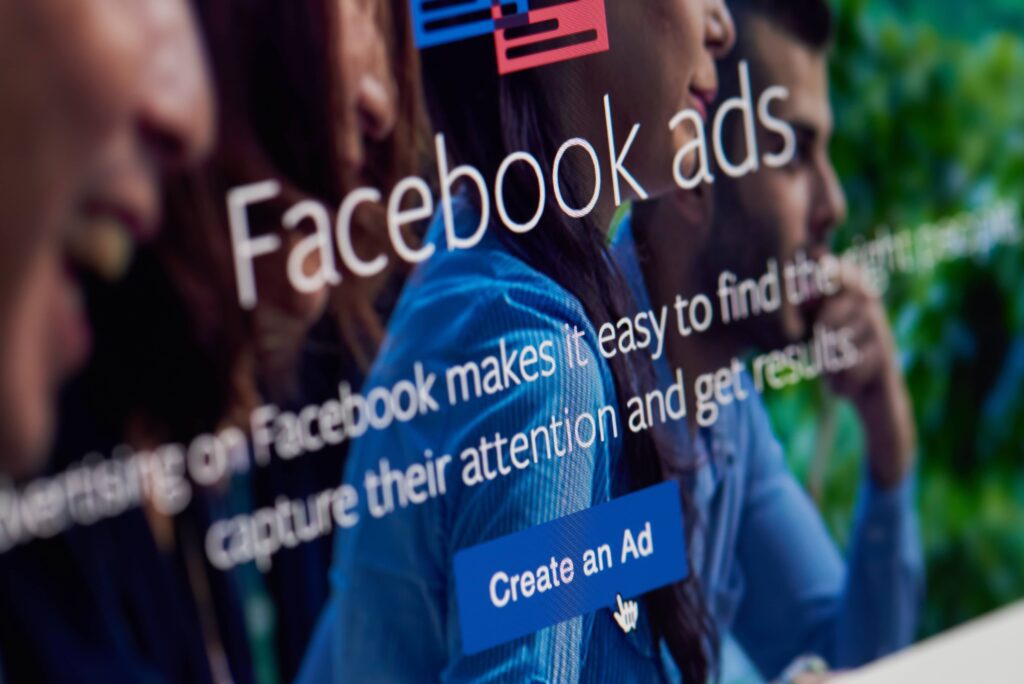
Like SEO, this can be a pretty complex topic and one that to cover in full goes far beyond the scope of this blog. It may be worth speaking to or hiring an expert if you really wish to master Facebook ads. In the meantime, Blueprint is a free learning hub from Facebook to teach you all the basics of ad creation. You can access it here.
The Benefits of Facebook Ads for Estate Agents
Targeting. Unlike traditional marketing, Facebook has the power to find people according to a very specific set of criteria you set. This makes it very powerful for cost effective marketing. The people you target with your ads are called your Audiences.
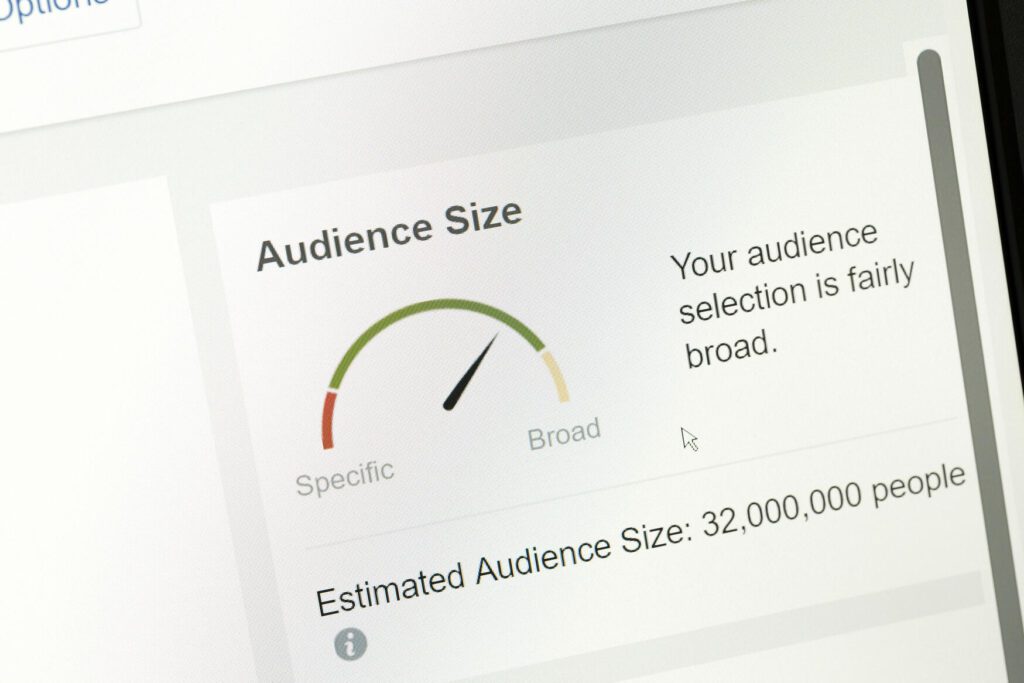
1. Custom Audiences
Creating a custom audience on Facebook means you can target your ads specifically at people who already know you. These people are “warmer” because they already know your business. Because of this, the chances of them responding positively to your ads is higher.
| Example of a custom audience: You could upload your email list of all vendors in the past 12 months. Facebook would then try to match a Facebook profile to that email and, where successful, you would then be able to target those specific people’s profiles with your Facebook ads. |
You can create different custom audiences for different email lists and target them specifically going forward. Examples of custom audiences you might create would be: your blog subscribers, previous buyers, and people you have carried out appraisals for etc.
2. Lookalike Audiences
Once you have custom audiences as described above, Facebook can create further audiences of people who “look like” your custom one. Facebook uses its magic to find other Facebook profiles that are similar to the people in your custom audiences. It is a great idea to target some ads to your lookalike audiences because those people may have similar circumstances, demographics or behavioural patterns to your current audiences which could render better results for your ads.
3. Saved Audiences
Again, this is where Facebook can really put some traditional marketing to shame! When you create a Saved Audience, you can choose different characteristics, age groups, locations, circumstances and ask Facebook to find people who fit that profile. This is marketing gold for estate agents. Example:
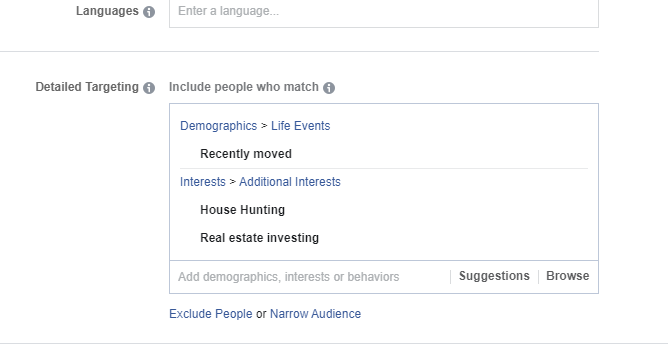
As this screenshot shows, not only can you target people who live in your specific region but you can also target people who are based on interests or activities “house hunting” or “recently moved”. Targeting based on specific behaviour increases the chances of your ads generating positive results and being wasted on people who would more than likely not care.
| You can also narrow your custom and lookalike audiences with criteria like “house-hunting”. This means that you could (for example) target your custom audience of vendors and ask Facebook to only show ads to the ones you are possibly house hunting. Powerful stuff! |
The other major benefit of using Facebook ads for estate agents is attention. To find potential vendors you need to be marketing to them where their attention is.

Facebook is the most used social media platform in the UK and the average person here spends 1 hour and 50 minutes every day on social media. This means there is a really high chance that your potential vendor’s attention is on Facebook which means you should be there too!
| You can also use Facebook’s advertising platform to target people on Instagram. On top of this, Linkedin & Twitter allow you to create paid ads that work in a very similar way. |
Once you have your audiences and you know who you’re going to target your Facebook ads to, you need a strategy. Of course, there are many strategies but in terms of finding potential vendors, you want to create ads that either:
- Make potential vendors aware and build trust with them before they need you; or
- Target homeowners and other people who may be ready to sell and offering them something in exchange for their contact details.
Making Potential Vendors Aware of You Before They’re Ready To Sell
One of the most effective ways to use Facebook ads to attract more vendors is to make them aware of you before they even want to sell their property. If you can get to potential vendors before they are ready to sell, you are able to build a “relationship” with them so that when they are ready to sell, you are first in their mind.
This strategy is the long game. It isn’t necessarily designed to turn the people you advertise into a client today but it increases the chance that they’ll become one later on.
Examples Of How To Use Ads In This Way:
- To encourage target people to like your Facebook page. Once they like your page, they will see your posts and other updates. If these add value, you will be building trust with them and increase the chances of being first in mind when they need you.
- To share valuable information that your target customer may enjoy – blog posts, videos, downloads etc. Again, this increases people’s awareness of your business and, by adding value to them, helps you to increase trust.
- To run competitions and giveaways. This is a great way to make target people aware of you and give them a good reason to exchange their contact details (so you can use in the future).
Targeting Homeowners & Other People Who May Be Ready To Sell
The difference between these types of ads and the ones above is going to be intent.
With these ads you would target people who are most likely to be ready and then offer them something they want in exchange with their details. Once you have these details you will be able to contact them directly and hopefully engage them as a client.
In order to do this two things need to happen:
- The ads should be targeted at people who are more likely to be ready to sell.
- Whatever you offer them should be something that (generally) only someone who would want to sell a property would be interested in.
Example Of How To Use Ads In This Way:
(a) To offer people a free valuation of their home.
These ads could direct target people to a valuation tool such as Valpal, where in exchange for their details, they could receive a valuation of their property. Typically (although not always) someone seeking a valuation may be someone ready to sell. These ads would therefore generate warm leads.
(b) To offer valuable information that someone ready to sell would want
These ads could offer people a valuable download (such as an ebook or video) in exchange for their details. In order to be worthy of contact details, the download would have to be valuable (not something they can easily Google). The download should also cover a topic that only someone motivated to sell would need eg: “How To Sell Your Home In 90 Days”.
| Pro Tip:Use Facebook Blueprint to learn how to create Lead Ads. These ads generate a higher number of leads because they enable the target person to exchange their details with you without having to leave Facebook and go to an external website. |
The Power Of Retargeting Ads
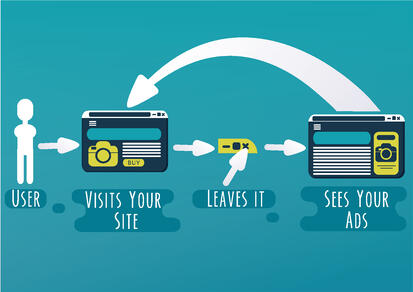
Retargeting is the process of remarketing to people who have engaged with your business previously. These people may be people who visited your website or watched a video you posted.
The chances of someone taking action the first time they engage with you (visit your website, open an email etc) is very low. In fact, it is believed it takes around 8 engagements before someone takes action.
This is why retargeting is so powerful. If you use Facebook ads to retarget people they are 10x more likely to click that ad and 70% more likely to take the action you want.
In order to retarget people using Facebook ads, you need to set up your Pixel. This is something that gets added to your website so Facebook can track visitors and allow you to target them with future ads.
Honestly, it sounds more technical than it is! But you can hire someone to add this or you can learn how to do it with the Facebook Blueprint tutorials we mentioned earlier.
Effective Email Marketing For Estate Agents

99% of people check their email every day. For many estate agents, their database of emails is probably one of their most wasted assets. Email addresses offer FREE direct access to potential customers that they will probably see. Most of the things we’ve already mentioned in this blog – referral requests, valuable information, free valuations etc – could and should be offered to potential vendors via email. The most important thing to remember when email marketing anyone, including potential vendors, is the idea of the compelling offer. Someone is much more likely to open an email where there’s a good reason to do so.
Tips For Your Email Marketing
- Use software that automates the process. You can use email marketing software that will automatically email specific people at specific times. This means you could set up something like a weekly newsletter to automatically go to specific people at the same time every week.
- Add value! Don’t just ask for something. Give the person you’re sending the email to a compelling reason to open and take action on the email. Great emails will typically educate, entertain or inspire.
- Send frequent emails. Don’t just send emails when you want something! Add value on a regular basis. This builds trust with the people you’re emailing and increases the chances of them taking action when you do ask for something.
- As with our Facebook ads, occasionally email something that only someone interested in selling their property would want. This could be a download such as “10 Things To Do To Prepare Your Home For A Quick Sale”. By tracking the people who download something like this, you are filtering out the people who are most likely to engage your services as a vendor.
Social Media For Estate Agents

Social Media is a real can of worms. What platform is the best one? How many times a week do we need to post? Should we post videos? So many questions and so many holes to go down. The one thing that is clear is that social media has your potential vendors’ attention. 67% of the UK population uses social media, the majority of them doing so every day. Unlike some of the other marketing techniques we’ve discussed, social media (not including paid social media ads) is mostly going to be about making people aware of your brand. Posting to Facebook today is unlikely someone calls you tomorrow to have you sell their home. Social media is a long game. A good social media strategy however will increase awareness of your business so that when potential vendors are ready, you will hopefully be first in mind. As with every other successful marketing technique, your social media activity should be customer first. Honestly, it is unlikely that the average person scrolling through their feed cares about what awards you’ve won or what your team had for lunch today. Unless the person has a personal connection with your business, these are unlikely to be the sorts of things they want to see by following you. Social media is not about posting the things that YOU think are interesting. Social media is about posting the things that your FOLLOWERS will find interesting. A good way to judge this is to ask whether the thing you are posting will inspire, educate or entertain the person seeing it.
The 80:20 Rule
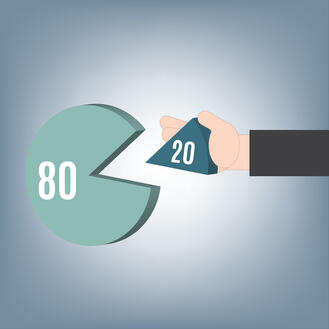
Of course, you’re on social media for a reason. At some point, you want all that posting to convert your followers into clients. A good formula to follow then is the 80:20 rule. This means that 80% of your posts are customer first. These posts add value over and above everything. The remaining 20% of your posts can be about you. These posts are your opportunity to ask for something – to sell!
| Stay On BrandWhilst 80% of your social media posts should be of your value to your customers – they still have to be ON BRAND. Posts about food may be interesting to your followers but it’s unlikely they follow your business – an estate agency – for generic food tips. It will make much more sense to your followers to see you posting about property or homeowner related topics. |
Example 1: As an estate agent, many of your followers may be homeowners or prospective homeowners. Interior design or home maintenance advice may therefore be of interest to them. You could even use attractive photos of properties you’re selling or have sold to demonstrate the tips – especially if the photos are high quality, professionally taken ones. Example 2: If your social media pages are specific to a local area (which is a good idea), many of your followers will be people who live in that area. Value to them might be information on local events or things to do. Giving your followers a sense of your being “local” and having expertise of the area may also build trust in the long run. The things you post can be varied but just remember to make the customer first if you want people to stay engaged with your pages.
Some Guidelines For Your Social Media Strategy
- Think about who your followers are / who you want them to be. Focus your efforts on the platforms that they use most.
- Add value! Really think about what is of interest to the people who follow you and make 80% of your posts all about them and what they care about.
- ATTENTION GRAB! Most people’s social media feeds are crowded. You have to remarkable photos or other visual content that really interrupts them and makes them want to stop scrolling.
- Be consistent and don’t stress if you don’t get instant results. Remember social media is a long game!
A Small Case Study: Savills
Savills is one of the most followed UK estate agents on Instagram.
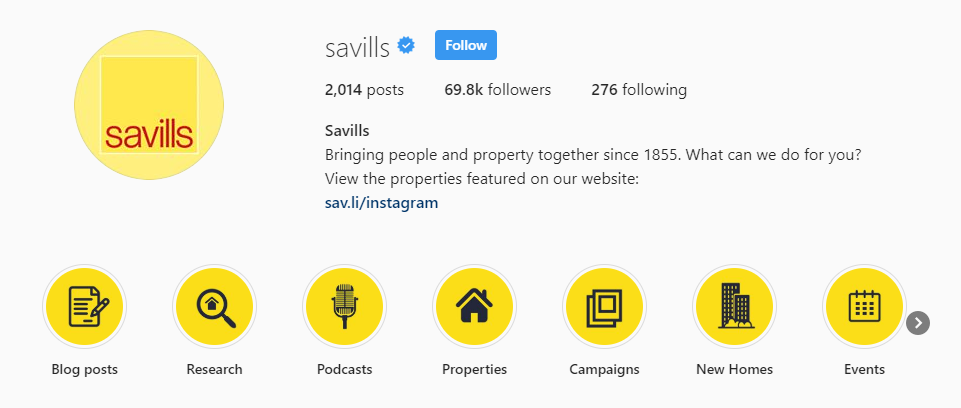
Specialising in high-end property, they are able to use their Instagram account to inspire. When you scour their comments, you’ll see people saying “Dream House”, “Gorgeous” and sometimes even expressing the desire to make an offer! Some of the reasons they achieve this are because they:
- Grab attention with professional photography that makes people want to stop and look.
- Post consistently – usually everyday (sometimes multiple times a day)
- Educate by sharing blog posts about topics of interest to their target customer (eg. sustainability/property investment research)
Download our free guide to Property Photography Mastery to get easy tips on taking great photography for your social media and other property marketing.
Traditional Marketing That Will Work Today
It cannot be denied that in today’s day and age, attracting potential vendors (and buyers) will require you to use some form of digital marketing like those tactics in this blog. This doesn’t mean though that traditional forms of marketing such as leaflets and canvassing are completely redundant. The requirements for traditional marketing that works today are the same as those for digital tactics such as email or social media:
- Is the customer paying attention to the place where you’re marketing?
- Do they make the person want to stop and pay attention or are they ignorable?
- Do they include something compelling?
If you can answer “yes” to these questions, then there is no reason why your traditional marketing should be any less effective than your digital efforts.
| A newspaper ad (for example) can still work if the person you want to target still reads newspapers and your ad both grabs their attention and gives them a reason to take action. |
Example: The Estate Agent Leaflet
This kind of leaflet is completely ignorable. It looks like the sort of thing someone throws in the bin without even looking at. Even with bold fonts and colours, people have received these kinds of leaflets through their doors a thousand times and learned to throw them in the bin. On top of that, it doesn’t offer anything beneficial to the person reading it and doesn’t incentivise someone to take action now. How Could It Have Been Better? It could have been posted in a bold colour envelope personally addressed to the person you wanted to read it. The bold colour would interrupt their usual routine and stand out. Even better the front could be handwritten. Someone is unlikely to throw that in the bin because they wouldn’t immediately be aware that it was a leaflet from a business. Including a handwritten note inside the envelope would also likely increase the chances of someone reading because it would feel personal and not like spam. The last way to improve something like this would be to make a compelling offer. How does the person reading it benefit from doing what you’re asking? Why should they take action now? What’s in it for them? Whether it’s a leaflet, brochure, advertising board, newspaper ads etc the same concept applies. Your traditional marketing should:
- Be positioned in a place where your target customer pays attention
- Interrupt their usual activity and make them want to stop and look
- Offer some compelling reason for them to take action and do what you’re asking
Remember it’s a necessity that all your property marketing is professional and uses appealing photography that attracts vendors. Find out about our latest offers on professional photography here.
Conclusion
In today’s world, the estate agent can no longer expect vendors to land in your lap because they were walking past the office. Estate Agents need to use a variety of effective marketing tactics that encourage people to refer their services and that ensure they are visible to potential vendors in the places they are already looking.
| To talk to Focal about professional photography that impresses your vendors, attracts more buyers and increase referrals, click here. Mention this blog to receive a FREE month’s photography service when you take up one of our subscriptions. |
